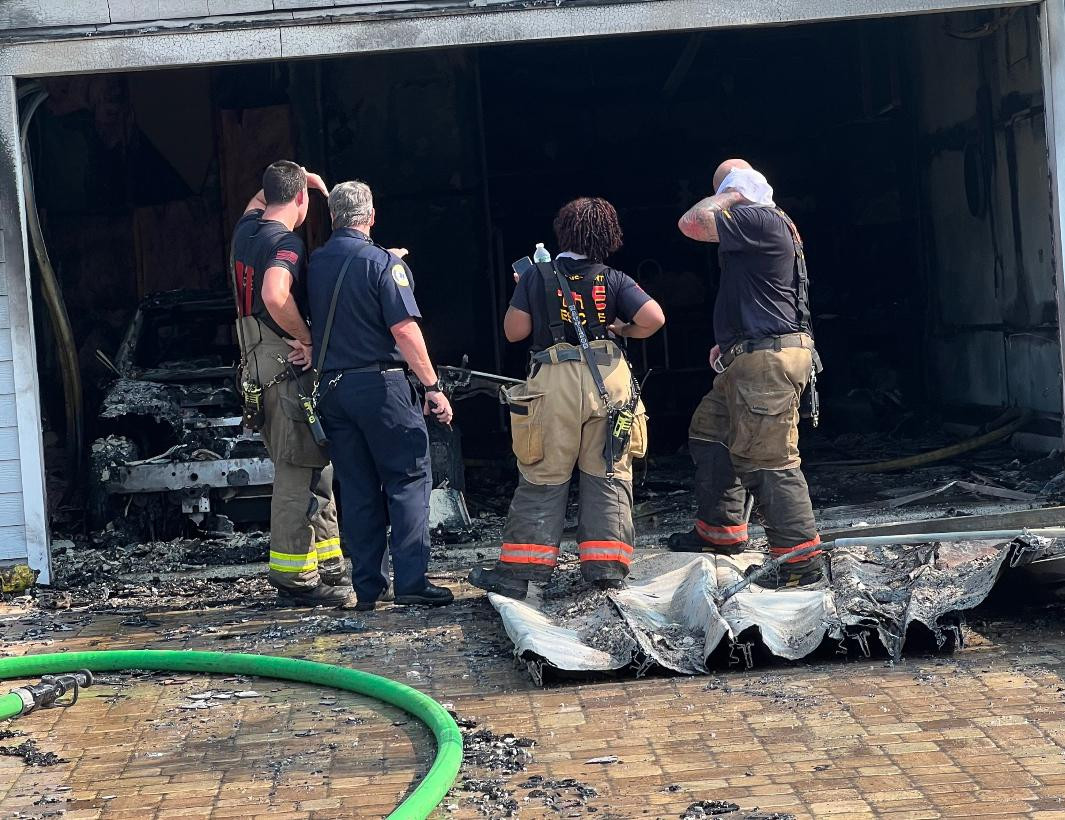The U.S. House Science, Space & Technology Committee's Investigation and Oversight Subcommittee held a hearing Feb. 29 on the growing concern over electric vehicle fires, revealing the distinct and formidable challenges they present compared to traditional vehicle fires. The discussion emphasized the necessity for advanced research and specialized training for emergency responders to effectively tackle these incidents.
Subcommittee Chairman U.S. Rep. Jay Obernolte, R-CA, noted in his opening remarks that, “as the presence of these vehicles continues to grow on our roads, so does the threat and danger of the fires that they can produce. EV fires are fundamentally different from traditional internal combustion engine fires…EV fires burn at temperatures far hotter than regular vehicle fires. They produce copious amounts of toxic chemical gases.”
He added that, “when an EV either experiences an incident due to a manufacturing defect or is damaged in an accident, the battery that powers that vehicle often has a remaining charge,” which “provides the fuel to keep a battery burning for hours, regardless of how much water is poured on it in an attempt to extinguish it. Unfortunately, the federal government has been deficient in providing guidance and resources…”
During the hearing, lawmakers explored potential solutions and preventative measures to mitigate the risks associated with EV fires.
“I believe there are tremendous opportunities for scientific research to reduce these risks by advancing our understanding of why lithium-ion batteries react in these ways, how the design of lithium-ion batteries can be improved to lessen the risk of fires, and what innovative tools and techniques can be developed," said Ranking Member U.S. Rep. Valerie Foushee, D-NC.
Full committee Ranking Member U.S. Rep. Zoe Lofgren, D-CA, added, “as with any emerging technology, we need to make sure we understand and adapt to the unique challenges that arise from its widespread adoption…over the decades, we’ve developed best practices to extinguish internal combustion fires as safely and quickly as possible. Now, we need to give that level of attention and support to research into electric vehicles.”
Testimonies from experts like Dan Munsey, fire chief for San Bernardino County in California, highlighted the practical implications of EV fires. Munsey estimated a substantial $3 billion would be required to train all U.S. firefighters to effectively handle EV-related emergencies.
Dr. Judy Jevarajan introduced the idea of developing methods for remote access to vehicle data to identify and address potential risks, while also acknowledging the cybersecurity concerns associated with such solutions.
Automotive Service Association Board of Directors Chairman Scott Benavidez thanked the committee for holding a hearing on this important topic.
"Independent auto repairers simultaneously constitute one of the groups most adversely impacted by EV fires, yet also one of the groups in the best position to help address them," Benavidez said. "There are numerous instances in which damaged EVs have caught fire and caused damage to the repair facility at which it was being held, as well as other vehicles in its vicinity. Due to these risks, repair shops are now encouraged to allocate space in their facility where they can isolate EVs for safe storage.
"At the same time, repairers possess high baseline expertise in automotive issues, which make us ideal partners for first responders trying to prevent or extinguish EV fires," Benavidez continued. "ASA calls on the federal government to coordinate with the independent automotive repair industry in its efforts to address the growing concerns surrounding fires caused by EVs. Assuring that repair shops receive proper training to handle EVs safely should be a top priority for policymakers.”












